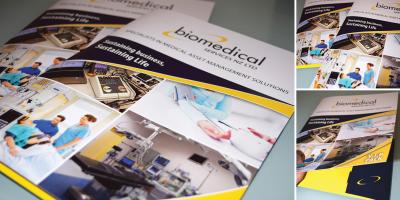Biomedical Services is a certifier of medical equipment and in this role diagnoses diagnostic instrumentation. It plies for hire in the district health board world, private hospitals, and in medical centres.
The organisation has been in existence as an enterprise entity for over 20 years.
Aside from its role in servicing, calibrating, and certifying equipment to required standards, Biomedical Services brings to the health care sector in-depth institutional knowledge in the matter of medical instrumentation procurement.
In the language of the information technology sector the company is brand agnostic which means that it is entirely neutral when it comes to equipment procurement.
A central operating principal is that it holds no product or systems agencies.
Because the company has always stepped aside from the business of brand standard-bearing it can be relied upon for neutral and unbiased points of view.
Thus each project that it embarks upon is taken upon its own merits and without any in-built loyalty to any systems manufacturer or brand.
The IT sector’s administrative marketplace in contrast has long been dogged by at face value neutral consultants.
These are in fact wedded to a particular supplier with the result that loyalty priorities are willy nilly applied to problems that may in fact require the application of a competing brand.
Biomedical Services though encompasses all medical instrumentation including those installed by agents and third parties.
The purpose here in the health care realm is to ensure that the equipment is being operated and maintained as it should be.
In the administrative IT sector and even in sectors of the process IT sector the provision of service and training manuals and procedures often falls by the wayside and this is especially so as experience engenders a sense of familiarity with the system.
In the health care sphere and just because lives are directly at stake and even if the equipment appears to be working to specification, such an attitude cannot be allowed to intrude.
Thus Biomedical Services implements and then supervises the life-cycle operations applications of the equipment and also of the parallel training modules.
The company is based in Wellington’s Hutt Valley and operates a nationwide field force.
In its role as a procurement, commissioning and test and measurement organisation the company exists in an exceptionally high value capital sphere in which problems, should they eventuate, will be severe and costly.
The sustaining by the Wairarapa District Health Board of a shared repository of proven experience and price performance outcomes for the health care sector as a whole represents a valuable sign post for the wider public sector, via one of its agencies, to implement a parallel venture in the administrative public sector.
In this wider public sector when it comes to departmental systems procurement and implementation there is too often a pioneering state-of-mind in which everything proceeds as if it were being undertaken for the first time.
The adoption in the wider departmental realm of an experiences-sharing group, such as the Wairarapa District Health Board venture on medical instrumentation procurement and implementation, offers the promise of a centralised resource centred on operational experience.
Too often, the world of New Zealand administrative computing has found itself the victim of supplier brand capture instead of experience-based shared operational institutional cooperative understanding.
| From the MSCNewsWire reporters' desk || Tuesday 16 January 2018 |||

